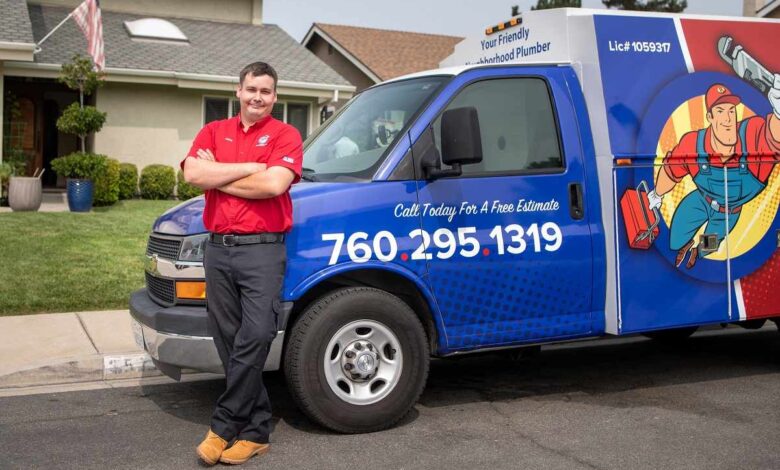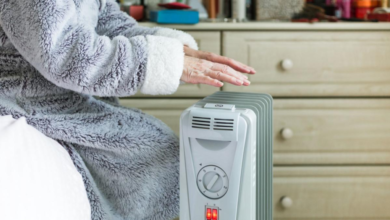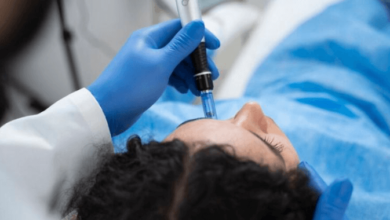How Regular Plumbing Checks by Oceanside Plumbers Can Save You Money

What Does a Regular Plumbing Check Involve?
Here are the key components included in a routine plumbing inspection by Oceanside plumbers:
- Inspection of Pipes for Leaks: Plumbers will check all accessible pipes for signs of leakage. This includes visible pipes under sinks, in basements, and those that can be accessed through crawl spaces. Detecting leaks early can prevent water damage and mold growth, which are costly to repair.
- Assessing Fixture Functionality: Every fixture, including faucets, shower heads, and toilets, will be tested for proper operation. Plumbers look for drips and other malfunctions that can waste water and increase your utility bills.
- Water Heater Check: The water heater is a crucial component of your plumbing system. Plumbers will assess both tank and tankless water heater functionality to ensure they are operating efficiently. This includes checking for corrosion, sediment build-up, and proper temperature settings. Regular checks can extend the life of your water heater and enhance its efficiency.
- Drainage System Evaluation: A comprehensive evaluation of the drainage system will be performed to ensure there are no slow drains or clogs. This often involves a visual check and may include a camera inspection to identify blockages deep within the pipes that could cause backups and overflows.
- Water Pressure Testing: High or low water pressure can indicate underlying problems in your plumbing system. Plumbers will measure the pressure to ensure it is within a safe range. Adjustments may be made to prevent pipe damage and ensure your fixtures function correctly.
- Sump Pump and Backflow Preventer Inspection: If applicable, these components will also be checked to ensure they are operating effectively, providing crucial protection during adverse weather conditions.
Early Detection of Problems
- Leaky Faucets and Toilets: A dripping faucet or running toilet might seem minor, but over time, the excess water usage can add up, increasing water bills. More critically, the constant moisture can damage fixtures and encourage mold growth, requiring extensive cleanup and replacement.
- Corroded Pipes: Due to the salty, moist air in Oceanside, corrosion in pipes can occur more quickly than in less harsh environments. Early detection of corrosion can lead to timely replacement of affected sections, preventing pipe bursts that can cause significant home flooding.
- Clogged Drains: While a slow drain might seem like a nuisance, it can indicate a deeper blockage. If not cleared, pressure can build up in the pipes, leading to cracks or bursts. Regular checks can clear these blockages early, avoiding emergency plumbing disasters.
- Water Heater Issues: Small inefficiencies in water heaters, such as sediment build-up or faulty heating elements, can quickly turn into major problems. Regular inspection and maintenance ensure that water heaters run efficiently and are less likely to fail unexpectedly, which can be particularly inconvenient and costly.
- Sump Pump Failures: In areas of Oceanside prone to occasional flooding, sump pumps are vital. A non-functioning sump pump discovered during a routine inspection can be repaired before the rainy season, preventing potential flood damage to basements and crawl spaces.
Extending the Lifespan of Plumbing Systems
Benefits of Regular Plumbing Maintenance
Regular plumbing maintenance involves systematic checks and minor repairs that can significantly extend the life of your plumbing system. These checks help to prevent the natural wear and tear from escalating into major problems that require expensive and extensive repairs. Maintenance ensures that every component of your plumbing system works efficiently and reliably, leading to reduced operational costs and enhanced performance.
Plumbing Components That Benefit Most from Regular Checks
- Pipes: Pipes form the backbone of any plumbing system. Regular inspections can identify issues such as small leaks, corrosion, or buildup that might compromise the integrity of the pipe. Early detection and repair of these issues can prevent more severe problems like bursts or severe leaks, which can be disruptive and expensive to fix. In Oceanside, where corrosion can be accelerated by the coastal climate, regular checks are especially important.
- Water Heaters: Water heaters are essential for comfort in any home, but they are prone to a range of issues from sediment buildup to system failures. Regular maintenance includes flushing the tank to remove sediment, checking the anode rod for corrosion, and ensuring the thermostat and heating elements are functioning properly. These actions can significantly extend the life of the water heater, improve its efficiency, and prevent unexpected breakdowns.
- Sewer Lines: Sewer lines are susceptible to blockages and damage from tree roots, debris accumulation, and general deterioration over time. Regular inspections, ideally involving camera surveys, can identify cracks, blockages, and other issues that might not yet be causing noticeable problems. Addressing these early can prevent severe backups and costly repairs.
- Sump Pumps: In areas of Oceanside prone to flooding, sump pumps are critical for preventing water damage. Regular maintenance checks ensure that sump pumps are operational before they are needed, preventing potential flood damage.
- Fixtures and Faucets: Regular maintenance also includes checking faucets and fixtures for leaks and wear. Replacing or repairing these components can prevent water wastage and protect the home from water damage.
Impact on Water Bills
Benefits of Routine Plumbing Maintenance on Water Efficiency
Routine plumbing maintenance involves thorough inspections and timely repairs of your home’s plumbing system. This proactive approach ensures that all components, such as pipes, faucets, and appliances, are functioning efficiently and are free from leaks or damages that can lead to high water consumption. Here’s how these checks can help lower your water bills:
- Leak Detection and Repair: Even a small leak can waste a significant amount of water. For instance, a single dripping faucet can waste over 3,000 gallons per year, and a leaking toilet can waste about 200 gallons of water per day. Regular checks help identify and fix these leaks promptly, cutting down on unnecessary water loss.
- Improving Fixture Efficiency: Routine maintenance often includes assessing and possibly upgrading fixtures like toilets, shower heads, and faucets to more water-efficient models. Modern fixtures are designed to use less water per use, providing the same functionality while consuming less, which is reflected in lower water bills.
Preventing Emergency Situations
How Scheduled Maintenance Reduces Emergency Situations
Scheduled plumbing maintenance includes regular inspections, cleaning, and repairs that ensure all parts of your plumbing system function optimally. This preventative approach is crucial for identifying potential issues that could escalate into major problems if left unaddressed. Here’s how regular maintenance by Oceanside plumbers can prevent emergency plumbing situations:
- Early Problem Detection: Regular inspections can detect early signs of wear and tear, such as small leaks, rust, or blockages, before they turn into major issues. Addressing these signs early on prevents situations like burst pipes, severe clogs, or major water heater failures, which are not only inconvenient but also costly to fix on an emergency basis.
- Maintaining System Efficiency: Scheduled maintenance ensures that plumbing systems, including drains, pipes, and fixtures, are clean and clear. This prevents the buildup of debris and sediment, which can cause backups and overflows, often resulting in emergency calls.
- Extending Equipment Lifespan: Regular service checks extend the life of critical components such as water heaters, sump pumps, and washing machine hoses. By keeping these components in good working order, plumbers help avoid sudden failures that could otherwise lead to flooding and extensive water damage.
Tips for Scheduling Regular Checks
How Often to Schedule Plumbing Inspections
- Residential Properties: Homeowners should consider scheduling a plumbing inspection at least once a year. This annual check-up can identify any potential issues that might have developed over the year, such as leaks, corrosion, or buildup in pipes. For homes with older plumbing systems or those in areas with harder water, considering an additional check-up mid-year can be beneficial.
- Commercial Properties: Businesses, due to their higher usage rates and potential for costly disruptions, should schedule plumbing inspections more frequently. Every six months is a recommended interval. This semi-annual schedule helps to maintain the integrity of extensive plumbing systems and prevent plumbing failures that could interrupt operations and incur significant repair costs.
Best Times of Year for Maintenance Checks in Oceanside
Oceanside’s climate, characterized by mild winters and warm summers, influences the optimal timing for plumbing maintenance:
- Pre-Summer (Early May): Scheduling a plumbing check in early May prepares your system for the increased demand during the summer months. Inspections should focus on ensuring that outdoor plumbing is ready for summer watering needs, checking that all fixtures are efficient for the likely increase in water usage, and confirming that your water heater is functioning correctly after the cooler months.
- Pre-Winter (Late October): Another critical time for a plumbing check is in late October, before the cooler, rainy season begins. This inspection should ensure that the heating elements of your water system are operational, sump pumps are prepared for increased water flow, and pipes are protected against any potential cold snaps, though rare, that can lead to freezing and bursting.



